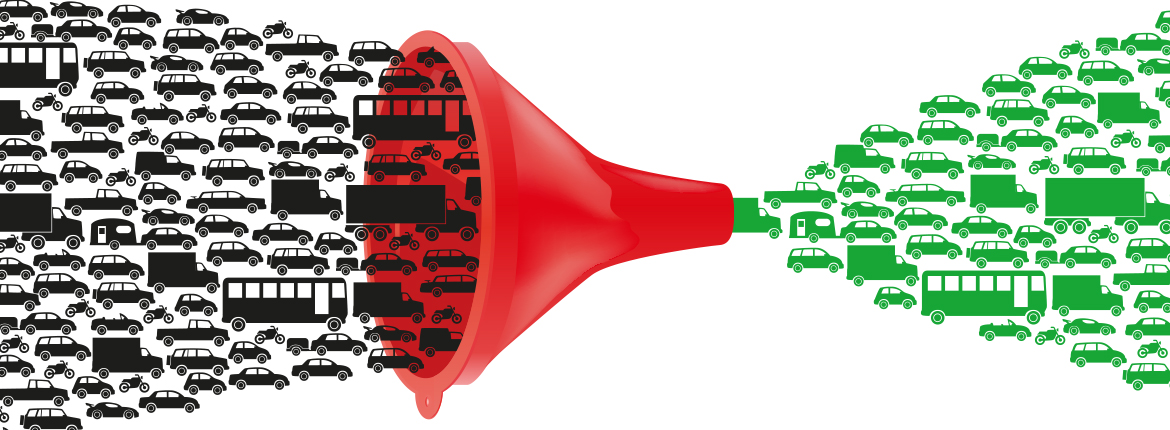
Paying the price
AA Members were asked to consider the cost of climate change action; Peter King reports.
How New Zealand might meet its international climate change obligations is a hot topic. In February, the independent Climate Change Commission suggested a broad mix of policies across the whole gamut of transportation, including encouraging more electric cars and use of biofuels, more transport options and infrastructure.
While it hasn’t responded fully yet, the Government has signalled it will raise the carbon price which would likely see fuel prices increasing by four cents a litre. It also plans to add a surcharge on imported vehicles that are less fuel efficient, so that over time people will be encouraged to buy more fuel efficient cars.
All of this will mean increased costs for the motoring public. Before the last two elections (2017 and 2020) the AA surveyed Members on climate change costs. Unsurprisingly, the big difference between the results of the two surveys was not the attitude toward climate change but the impact of Covid-19.
We asked about both grocery and fuel price increases of five percent and 25% and found sensitivity to even small price increases had grown by a third since 2017. It seems likely that Covid-19 income uncertainty had an impact on Member’s responses.
Broadly, four-fifths of AA Members support environmentalism in general, and a third consider themselves environmentalists. Support is strongest among younger and female Members and weakest among older and male Members, also depending on education and financial confidence.
When asked how much action New Zealand should take on climate change, almost a third (30%) said “as much as it takes.” But here’s the thing: when asked how much those same people were willing to pay each month, given a range between $0 and $100, the average was $49. By contrast, half the Membership would not want to pay more than five percent extra for fuel.
This is where equity becomes important in the climate change problem. Statistics New Zealand income data shows younger people, and women in particular, currently earn less than older people and men so while they may be more sympathetic, there are limits to what they can afford.
That said, the impact of Covid-19 on climate change was not all bad. New Zealand saved 743,000 tonnes (about 10%) of greenhouse gas from petrol alone during lockdown and radically changed the way we thought about transport. In 2017, few envisaged themselves using telecommunications instead of commuting, but in the 2020 survey almost half of working respondents were working from home at least one day a week. This is a significant change in outlook which could potentially reduce emissions.
Members also supported (two to one) the Government intervening in the car market with incentives for lower emitting vehicles (electric and hybrid) and disincentives for less fuel efficient vehicles. The key caveat was they want car prices to remain fair and not unduly expensive.
This policy will reduce emissions over two decades but it’s unlikely to be quick enough to meet our Paris Agreement targets, so other policies will be needed.
There was one thing Members were clearest about: they want the charges that are collected at the pump for greenhouse gas emissions to be spent on preventing carbon emissions, or mitigating the effects of climate change, rather than funds going into the Government’s general account. This was also supported by the Climate Change Commission. Given that each cent per litre of carbon charges added at the pump raises $58 million per year, 14 cents a litre would yield $812 million per year for the Government. Support for spending this on climate change was 75%.
This presents New Zealand with a challenge. Most people want action on climate change, but the Covid-19 recession in particular means they can’t afford much in the way of additional costs. Ideally they would find a way to travel in a way that doesn’t increase the amount of greenhouse gas in the atmosphere. Nobody believes that getting to that solution is going to be easy but at least if there is funding for the task, we’ll make better progress.
The AA’s calls
Transport has a vital role to play in reducing New Zealand’s greenhouse gas emissions. No single response – be it around public transport, active modes, electric vehicles (EVs), car sharing, more efficient vehicles, carbon neutral fuels or trip substitution using telecommunications – will provide a silver bullet solution; a mix will be needed.
That said, the AA is strongly of the view that all of these solutions will require considerable investment, so the funding collected by the Government for making emissions should be spent on reducing emissions or mitigating the effects of climate change. Therefore, we call on the Government to dedicate emissions trading scheme revenues for such a purpose.
Also, while EVs will eventually form the basis of a decarbonised car fleet, the transition over the next few decades must also take other concerns such as safety into account. This will require a vehicle fleet strategy to manage the entry and exit of vehicles to the national fleet.
Reported by Peter King for our AA Directions Autumn 2021 issue
